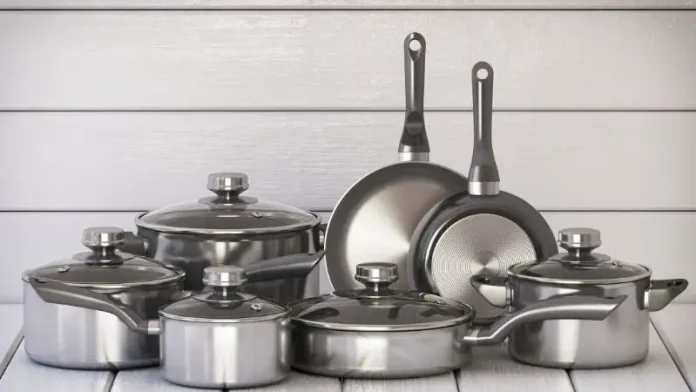
The basics of a kitchen are defined by the tools you use in it, and the future of your health is defined by the food you eat. Therefore, as much as the role of a skilled chef matters in the kitchen, reliable and safest cookware is regarded in the same way. We love to prepare and eat the recipes that we know are full of nutrients, but we least care about the safest cookware that is helping us make them. No matter how far we go in maintaining our diet, if the cookware is not safe enough, we will end up catching awful vibes for our health and fitness.
Let’s determine the hard facts together: which cookware material you need to discard from your kitchen, which should you purchase on priority, and for what reasons!
Safest Cookware – The Types You Do NOT Want to Use
1. Stainless Steel
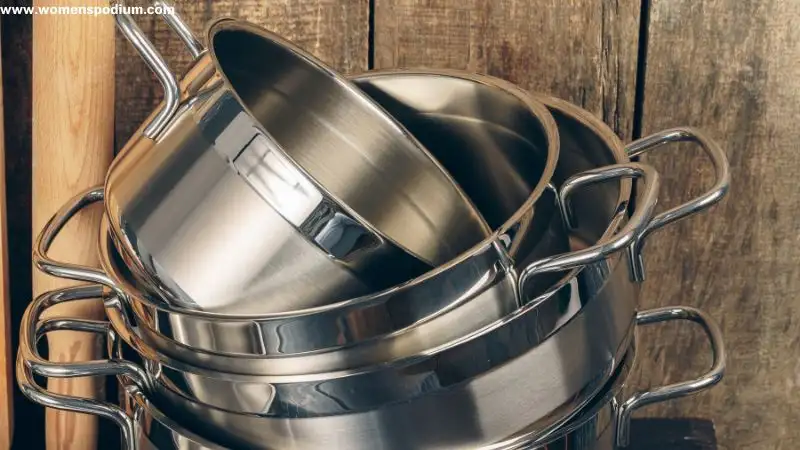
Stainless steel is a metal alloy and is good to go with only if it does not contain the concentrations of nickel and chromium. Iron brings no such havoc, so its presence is not a dilemma. However, experts consider nickel and chromium as major carcinogens, and most people are directly sensitive to nickel. Just have thought about how dangerous it can be for them that they indirectly have nickel traces in their food through the cookware. Before buying stainless steel cookware, double-check if it’s food-grade stainless steel, and then grab it. For the rest, it makes delicious food and is super affordable.
Safety Tip:
Surface lubricants can be a big-time savior that works to minimize the connection between the surface and the food. You can trust olive oil or coconut oil for this purpose.
2. Aluminum
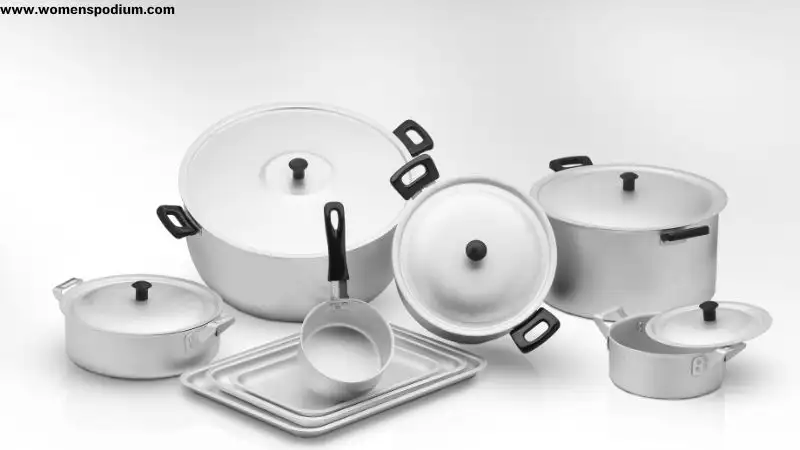
In this material, you come across two choices:
- Aluminum cookware
- Anodized Aluminum Cookware
Aluminum cookware possesses high risks of leaching the metal into your food every day, while anodized aluminum undergoes unusual reactions that turn its metallic properties into a nonstick tendency. However, if you want to continue using aluminum cookware, just know that it can easily trigger Alzheimer’s in your elders and respiratory diseases in your children, while cancer is handy for all ages. It happens with the usual intake of up to 10 milligrams of aluminum through the food you cook, which is quite toxic when it all accumulates in the body to present its bad sides.
Safety Tip
Avoid storing food in the refrigerator or at room temperature in your aluminum cookware for long periods.
3. Ceramic
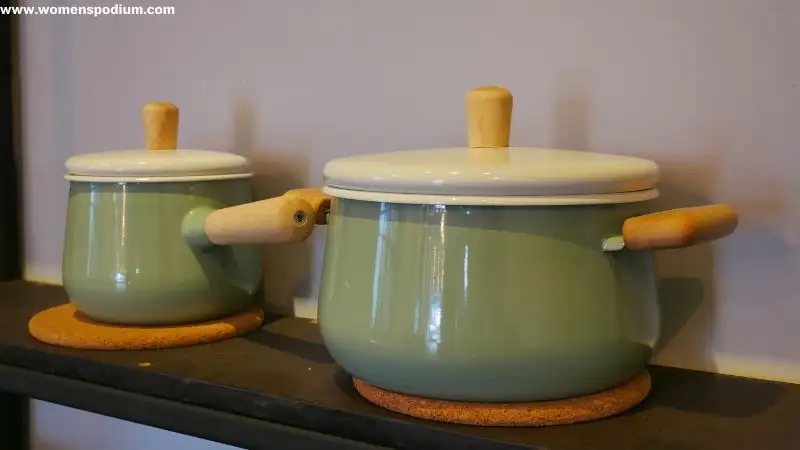
Just like aluminium, the ceramic range also puts forward two options:
- Pure ceramic cookware
- Ceramic-coated cookware
The ceramic-coated cookware is made of metal, but the outer coating simply includes the slightest of ceramic through the silicone base. There is quite a difference between the impressions of pure ceramic and the ceramic that lies on the exterior. People run after ceramic-coated cookware just because it’s inexpensive; otherwise, the real harmful metal that it is made up of starts leaching into your food after several uses. On the other hand, pure ceramic can cost you an arm and a leg, but would not affect your health as it is safe for the purpose.
Safety Tip:
Employ either a plastic or a wooden spatula while cooking in the ceramic cookware.
4. Cast Iron
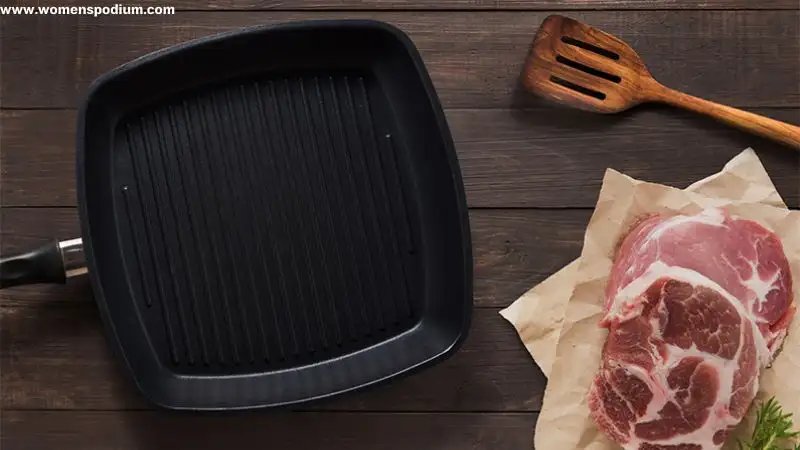
This is by far the only cookware material where leaching is not a big threat. Therefore, cast iron comprises iron elements that can leach into your food on and off, but do more good than bad. Our bodies need an adequate amount of iron to function properly, just like zinc, magnesium, and calcium. People with a lower iron concentration in their blood are even suggested to take the food cooked in cast iron as it retains superior heat on the surface. You can also turn your cast iron cookware into nonstick cookware through seasoning for additional benefits.
Safety Tip:
Just don’t delay the cleaning process with cast iron cookware, and the best is to wash it with warm water.
5. Copper
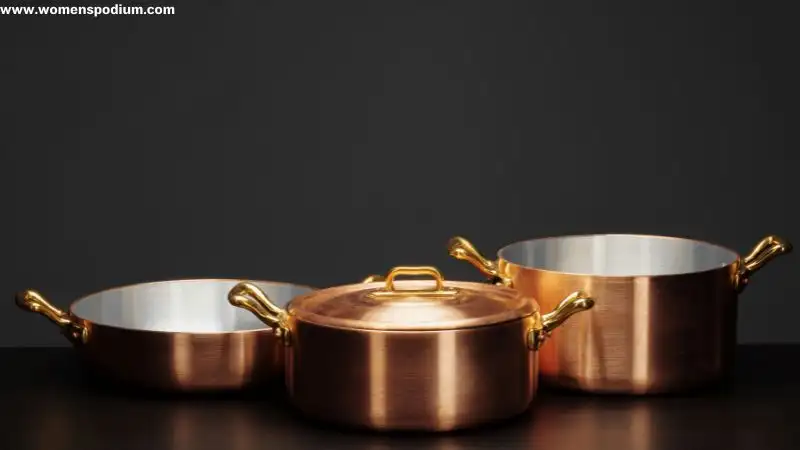
Copper is a heavy metal, and it is often combined with nickel or tin when coated, so you know the danger with this cookware is twofold. Despite the fact that it is quite famous for its success because of superior heat conduction and amazing looks, when copper or nickel leaches into your food, the harm is intense. Either through pure copper or copper coated with nickel, the deterioration can not be minimized, and its safety is never evident in any way.
Safety Tip:
Be quick with drying your copper pan after washing because the lingering water can adversely affect its surface.
6. Nonstick
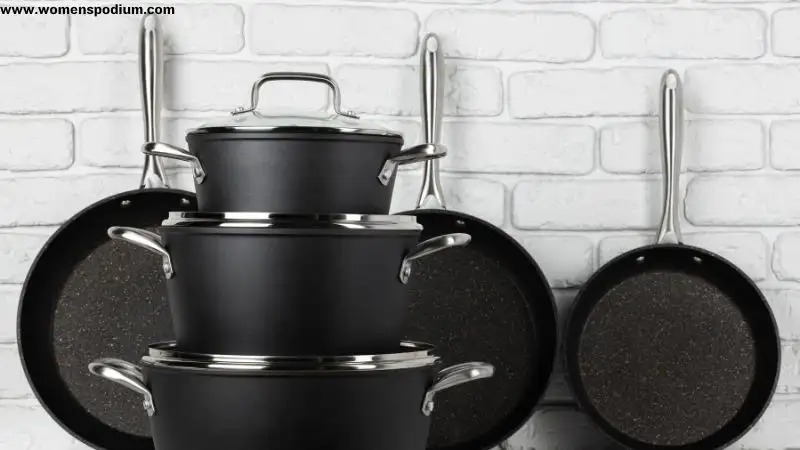
Nonstick may seem as effectively the easiest-to-use cookware with the minimum investment possible. Since the list of pros is comprehensive, people find it to have in any way, overlooking the health effects completely. The Teflon used in the coating is a health hazard. And its continuous approach to your body can lead to as many diseases as you can think of. The variety of coatings may render you an easy-release finish, but if you happen to overcook the surface by chance, you may also fall prey to the Teflon flu caused by inhaling toxic fumes.
Safety Tip:
Never ever let the temperature exceed medium while using nonstick cookware because high temperatures trigger poisonous fuming of chemicals used in the manufacturing.
7. Glass
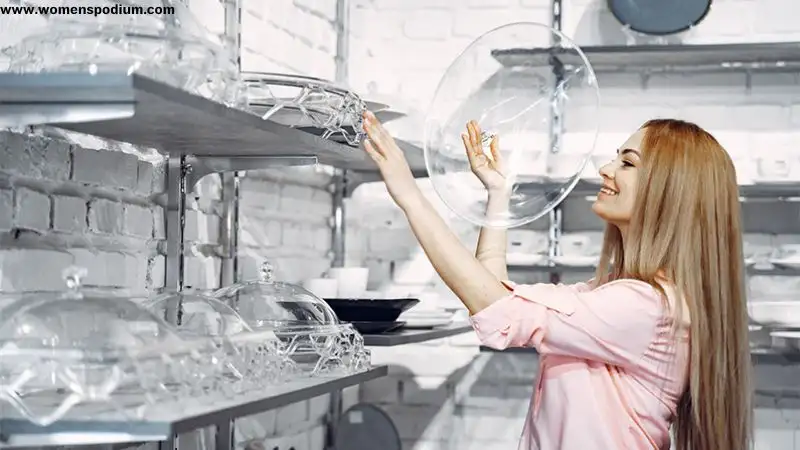
Glass is another reliable cookware material to use when it comes to safety. It is durable if you go the extra mile for its maintenance; you can end up having it for quite a long time. The best thing about glass cookware is, there is no possibility of leaching. Also, the taste turns out to be more soul-restoring than ever. While using it, you may initially face complications if you have previously handled nonstick materials. As it pretty much works otherwise, the nonstick cookware.
Safety Tip:
Avoid making the basic dry recipes in it, make sure the glass doesn’t shatter, as well as using dry cloths to handle hot glass cookware.
Conclusion:
You can use the safest cookware or problematic cookware with high safety concerns only if you master using them with precautions, safety measures, and provided tips.
Also Read: The popularity of modern kitchen appliances is on the rise in recent years. These are kitchen appliances that you can add to your kitchen, making cooking easier and saving your time and effort.





